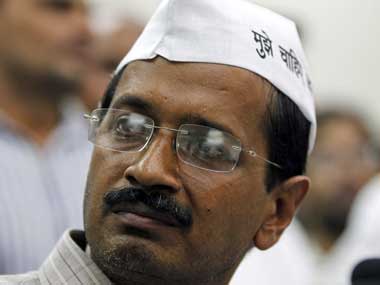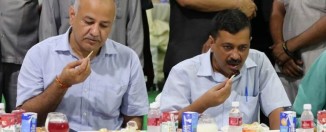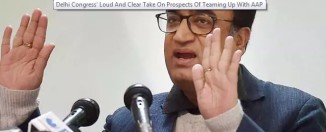Keeping a watch on ‘defamatory news’: How Kejriwal ended up contradicting himself
New Delhi: The circular issued by the Delhi government to keep a watch on the media for ‘defamatory news’, is likely to embarrass Chief Minister Arvind Kejriwal as his own petition before the Supreme Court contradicts the diktat.
Issuing the circular, the Delhi government has asked its officials to lodge a complaint with the principal secretary (Home) if they come across any news item which reportedly damages the reputation of the CM or the government so that further action could be taken.
However, a petition by Kejriwal challenging the validity of Section 499 of the IPC is before the Supreme Court. This section provides that any person whose reputation has been damaged (or was intended to be damaged) by the material in question can sue for defamation. ‘Any person’ refers to a single individual, an association or collection of persons or a company.
Mehmood Pracha, senior advocate at Legal Axis Attorneys & Solicitors’ firm said, “Arvind Kejriwal himself has challenged the validity of Sec 499 of the IPC by making a petition before the Supreme Court through an affidavit. Using the same law against the media amounts to gross misuse of the law and it goes against his belief. He himself raised voice against this law. It’s the duty of the Press to inform the public about the truth in the society and political sphere. The Press has been functioning in public interest and simultaneously it’s also well aware about the Defamation Law.”
He further said, “It’s also to be seen whether Sec 499 is constitutionally valid or not, because it’s a colonial law enacted by the British government to curb the voice of freedom of Indians against them. It has outlived its utility. Criminal defamation goes against the international standards on freedom of expression and imposes an unreasonable restriction on freedom of speech guaranteed by the Constitution. But, there are 11 exceptions to the law, like it allows one (press) to speak truth, etc.”
The Supreme Court had stayed proceedings in two criminal defamation cases against Kejriwal on 30 April, in which the constitutional validity of the penal provisions was challenged.
“Similarly, the SC has also stayed proceedings in defamation cases against the BJP leader Subramanian Swamy and the Congress vice president Rahul Gandhi,” added Pracha.
Deploring the government circular, the Editors Guild of India said in a statement: “It is doubly ironic that Mr Kejriwal who in the Supreme Court has challenged the constitutional validity of the criminal defamation provisions of the Indian Penal Code when used against him should direct his government to use the same provisions against the media.”
The Delhi government has faced severe criticism for the circular from several quarters including all political parties and the media.
According to a government source, the circular would require a reference letter to be sent to the principal secretary (Home) containing details of the defamatory imputation published, the mode of publication, factual inaccuracy, details of allegations made and ground for believing that it will harm the reputation of the person against whom the imputation has been made.
“The government hasn’t formulated or introduced any new law. It is reiteration of the existing Defamation Law and whatever enumerated in the law will be followed,” AAP leader and spokesperson Ashutosh told Firstpost.
He added, “The party has nothing to do with it. It’s a government circular. If the government thinks to take action against a TV channel or print media on the basis of any news content or article considering it as defamatory, it would be on a legal basis. The person will be served with a notice and asked for his clarification. And on that basis, further decision will be taken, if required.”
However, there are many voices within the media, who agree to an extent with Kejriwal’s diktat.
“It’s not a one-way action. There is a section in the media, especially a few TV channels, who go hammer and tong after people on absolute non-issues. Several veteran and senior journalists would agree that some news channels sometimes go overboard in criticizing or constantly attacking a public personality or a politician without any valid reason or proof. Following ethics, if media exercises self-control and self-restriction, the government won’t have to resort to defamation law to curb the voice of the Press,” said senior journalist Mohd Ahmad Kazmi, who has worked both in print and electronic media.





